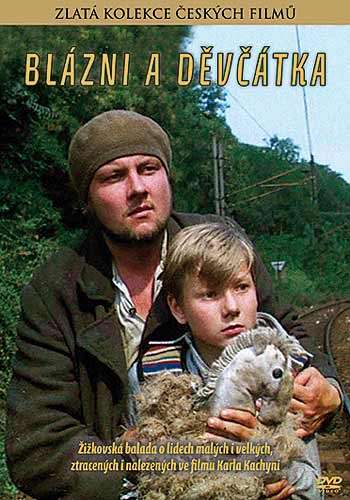Quote:
Czechoslovak cinema was reinforced in 1963 by the emergence of Jaromil Jireš. He made his directing debut with a simple narrative based on a book by Ludvík Aškenazy (who also wrote the screenplay). Similarly to contemporaries at Prague’s FAMU film academy, this talented young filmmaker was influenced by the documentary approach to making feature films. The protagonists in Křik (The Cry), husband and wife Slávek and Ivana, experience a rather important day in their lives during which they are separated from each other. Ivana lies in the delivery room giving birth to their first child, while Slávek is repairing televisions at work. The spouses dwell on themselves and the life they have up until now experienced with each other. Jireš and cameraman Jaroslav Kučera use a hidden camera perspective, something that was quite unusual at the time. The director also uses non-actors to add authenticity to the narrative. Slávek is, however, played by the experienced Josef Abrhám.Read More »
Czech Republic
-
Jaromil Jires – Krik AKA The Cry (1963)
Drama1961-1970Czech RepublicJaromil Jires -
Petr Václav – Marian (1996)
1991-2000ArthouseCzech RepublicDramaPetr VáclavVáclav started his career as a director of film documentaries, first attracted critical attention with his graduation film, Paní Le Murie (Madame Le Murie, 1993) and consolidated his reputation with his first feature Marián (1996), which testified to the problems of social and racial determination and more generally also the theme of human freedom and humiliation.Read More »
-
Gustav Machaty – Erotikon (1929)
1921-1930Czech RepublicGustav MachatyRomanceSilentIMDb user comments:
75 years after the release of EROTIKON, I had a chance to see it in a modern cinema in Wroclaw (Poland). The wonderful experience was intensified by the live background music played by the members of Prague Archa theater. It was a lovely return to the end of silent era, the year 1929. The film EROTIKON, made by Gustav Machaty, caused controversy among the audiences of that time. What particularly shocked them was the way the director showed love scenes. Some admired it, some condemned it and, as a result, it was underrated and lost for years. Fortunately, the copy was found in the 1980s and restored for today’s audience who can admire the genius of Machaty.Read More » -
Karel Kachyna – Blazni a devcatka (1988)
1981-1990ArthouseCzech RepublicDramaKarel Kachyna




